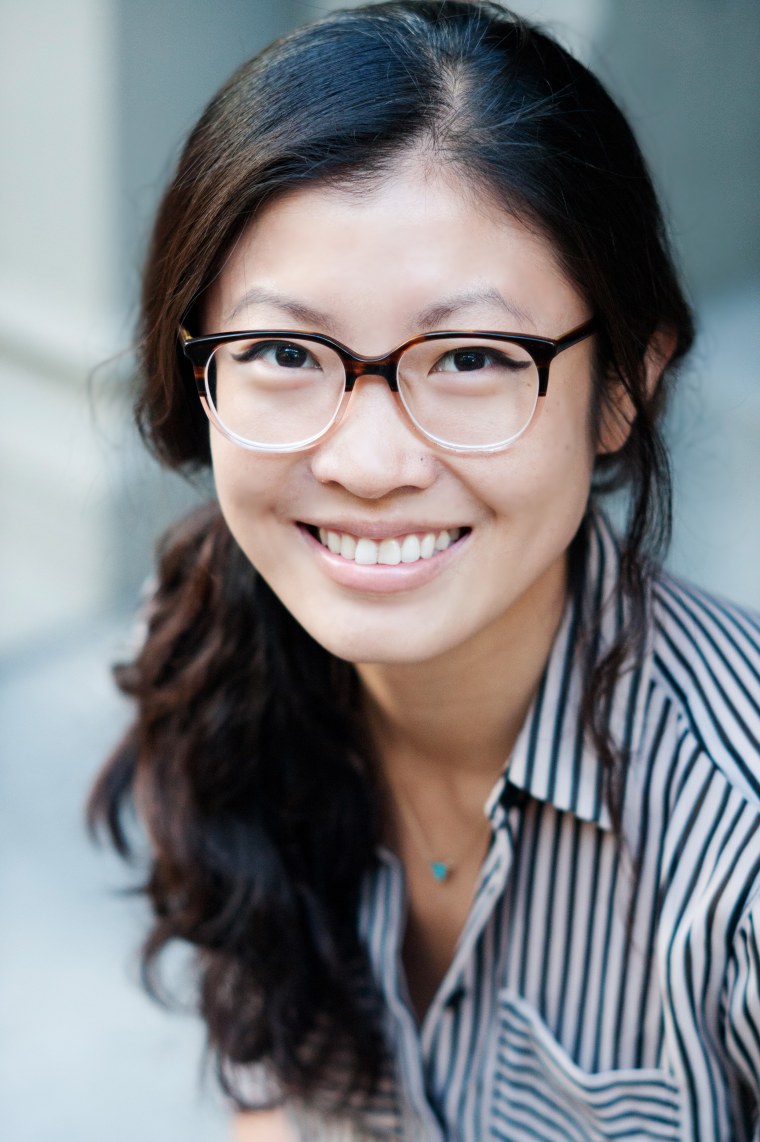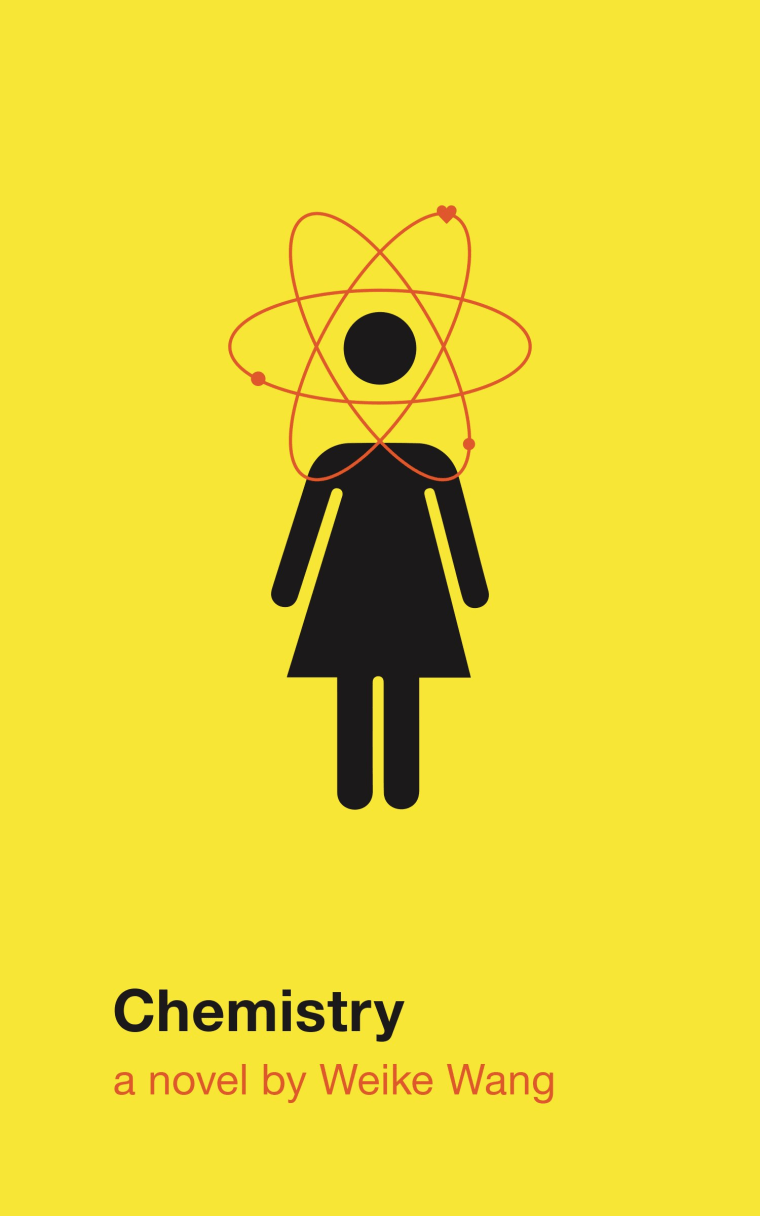Potential readers would be forgiven for not expecting Weike Wang’s new novel “Chemistry,” which is about a Ph.D. student who struggles with family pressure, relationship issues, and depression, to be funny.
But the 29-year-old debut author is quick to point out that humor has always been used as a tool to get through tough moments.

“When you think about how we get through hard times, one way is to write about it," Wang told NBC News. "However, for me, I have trouble reading a book that’s entirely somber. I like to smile while I am reading as well."
In "Chemistry," which was released last month and has garnered praise in publications like the New York Times Book Review, readers watch as the nameless narrator drifts through her studies and increasingly becomes disillusioned with both her career path and her long-term relationship.
Wang was inspired to create her enigmatic character after working for years in research labs and her own experience getting a Ph.D. (although hers, unlike her main character’s, is in cancer epidemiology.)
“I majored in chemistry and I sort of saw the grad students sort of fall apart,” Wang said. “Scientists are so often falling apart. I wanted to look at that fall.”
She added that she could not help but notice how many Asian-American students ended up in the sciences and began thinking about the decisions that lead to that choice.
“A lot of Asian Americans go into medicine or engineering or finance,” she noted. “But a lot of my friends are really questioning what they are doing [with their careers]. They are hitting 30 and they are realizing they have a lot more years left … With other ethnicities, I think they think of that a little earlier.”

As for Wang herself, she said she genuinely enjoyed working in the sciences, but still felt her fate lay elsewhere. “I like research, but I realized that someone else could be doing that research, with my writing I felt like I could be the only one doing that,” she said.
In addition to the book’s humor, reviewers have noted Wang’s choice to keep her narrator nameless. Wang explained that the decision to do so was a deliberate one. “When I think of a name it is very specific to the character and I didn’t want that to happen,” Wang said. “Would I name her something Chinese or something American? I didn’t want to deal with that.”
Juggling multiple identities is something Wang has a bit of experience in. Born in China, she and her family moved to Australia when she was 7 and later moved to Canada and then eventually to the United States. “When I write characters that are not open, it’s because I’m not necessarily that open in terms of opening up to new people,” Wang said. “I made her like that in that she is just very lonely. And when you are lonely, you are not used to telling people how you feel.”
"A lot of my friends are really questioning what they are doing [with their careers]. They are hitting 30 and they are realizing they have a lot more years left."
Wang added that she has been a bit taken aback at how mean many readers and reviewers said they thought her narrator’s parents were. Noting that while her book’s fictional parents did have high standards and did not always understand their daughter (especially as she waffled in regards to her studies), they were not uncaring.
“When you are an immigrant parent, ‘Do I want to make my child happy?’ is not a question you always ask,” Wang said. “It’s ‘I need to feed her. I need to put a roof over her head. I need to make sure she has health insurance.’ My point is not to vilify them.”
That view of family also shaped how Wang developed her narrator’s journey and subsequent contrariness. “It’s not the traditional rebel story. It’s not like ‘I’m going to go travel to find myself’ or ‘I am going to join a band.' Because everyone I know rebels quietly,” she said. “It’s not ‘F**k you, parents. I’m just going to leave the country.' It’s doing really tiny things. Because first, my parents would kill me if I did that and also, how am I going to get health insurance if I do that?”
Follow NBC Asian America from Facebook, Twitter, Instagram and Tumblr.